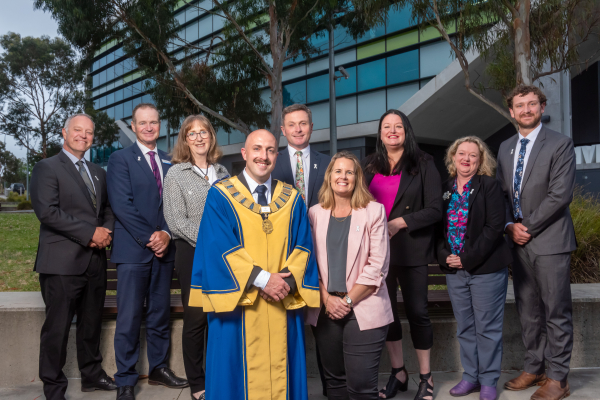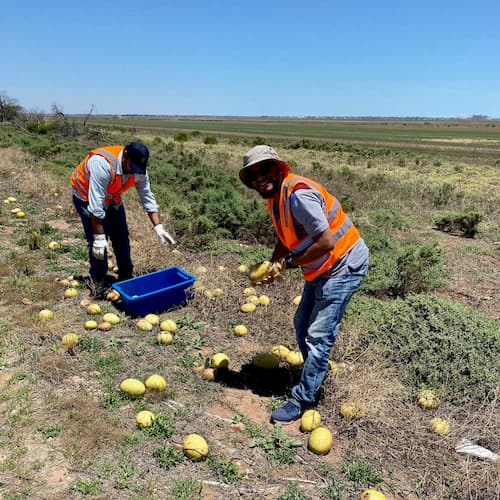While there are plenty of researchers at the University of Southern Queensland doing just that, this year’s theme ‘Deep Blue: innovations for the future of our oceans’ seemed a stretch for the land-locked USQ.
However, Professor Craig Baillie, who heads the University’s Centre for Agricultural Engineering said research activities occur all around the globe and focus on land use practices and the efficient use of farming inputs which have significant consequences for the quality of water ways and coastal environments.
“The linkages between our research and environmental impacts can sometimes be surprising,” Professor Baillie said.
“For example, camera based spray technology developed by the University’s Centre for Agricultural Engineering stands to maximise farm productivity, saving Australian farmers up to 80 per cent of herbicide in a single spray application.
“At the same time, the technology can deliver environmental benefits by reducing the amount of herbicide lost in runoff – water that can ultimately reach the ocean. Technologies like ‘sense and spray’ help reduce the traditional act of distributing herbicides over an entire field, and instead only target the areas that require it.”
USQ soil and water scientist Dr Alice Melland said it was a team effort with landholders to keep useful herbicides on the farm and out of waterways.
“Spot spraying techniques – where farmers minimise wastage by targeting smaller areas – means less herbicide in the runoff that reaches waterways,” Dr Melland said.
Other research has also focused on technologies and practices for improved fertiliser management and understanding the associated water quality benefits.
“Nutrients, such as nitrogen and phosphorus are essential to the successful production of crops,” Dr Melland said.
“However, these nutrients can disrupt aquatic ecosystems if excessive amounts move from paddocks to creeks, rivers, lakes and oceans through processes such as runoff and leaching.
“We’ve worked in a range of industries including both the livestock and cropping sectors to develop nutrient management practices to improve environmental sustainability.”
Nutrient runoff research at USQ has informed a range of sensitive catchment areas, including the Murray-Darling Basin and coastal catchments both in Australia and overseas
“I’m currently leading a team of soil, irrigation and rural development scientists across Australia, Laos and Cambodia to identify ways to improve soil and irrigation management of vegetables, in order to improve yields and well-being on small family farms.”
The Centre for Agricultural Engineering encompasses a range of experts from different disciplines including mechatronics engineering, automation robotics, irrigation, and soil science, as well as precision agriculture technologies.
“From small ripples to big waves our research is making a difference around the world,” Professor Baillie said.









